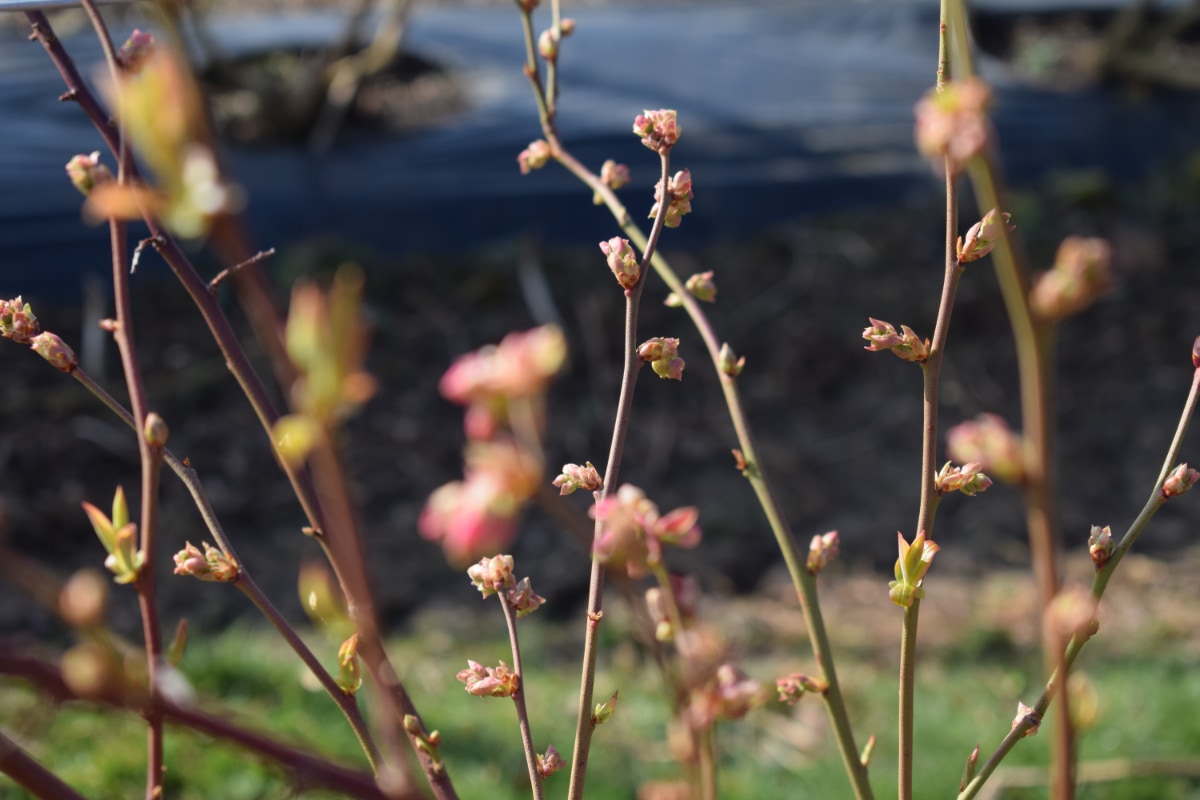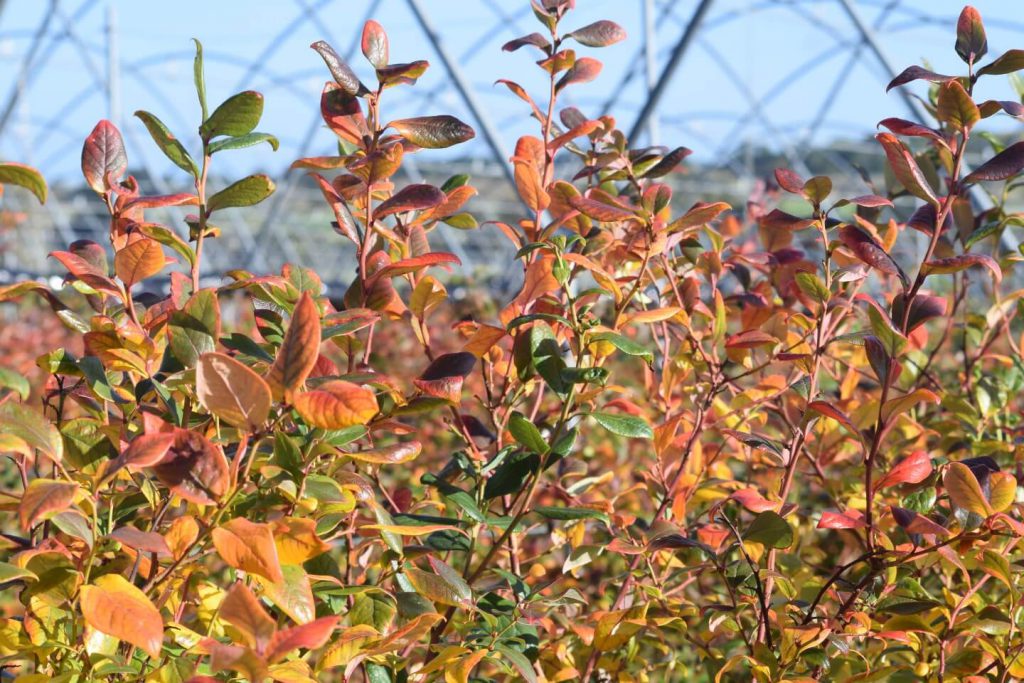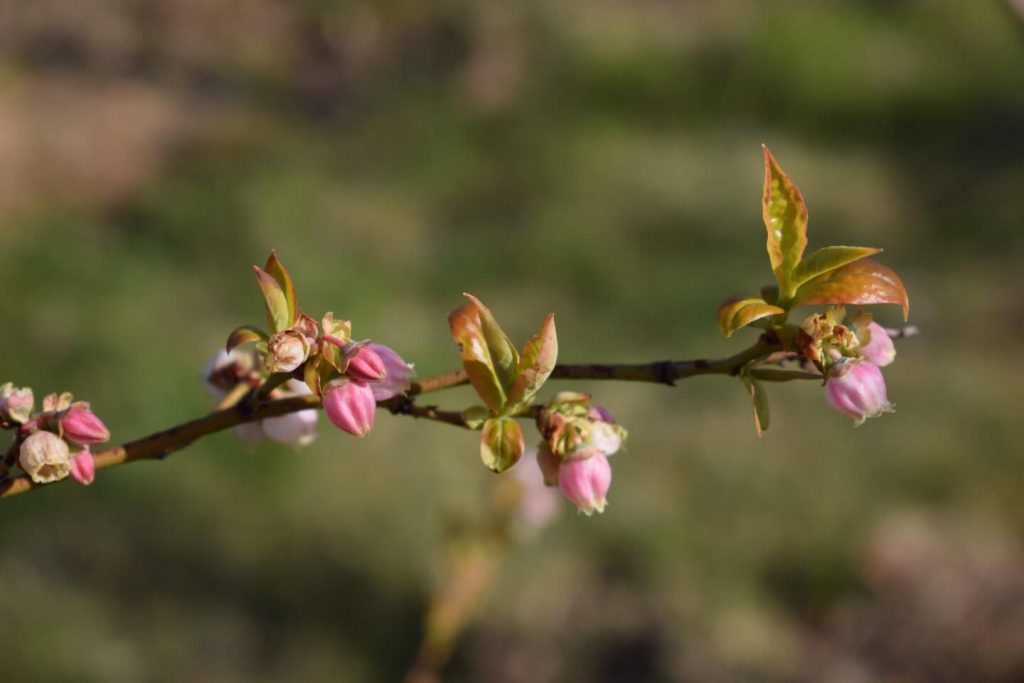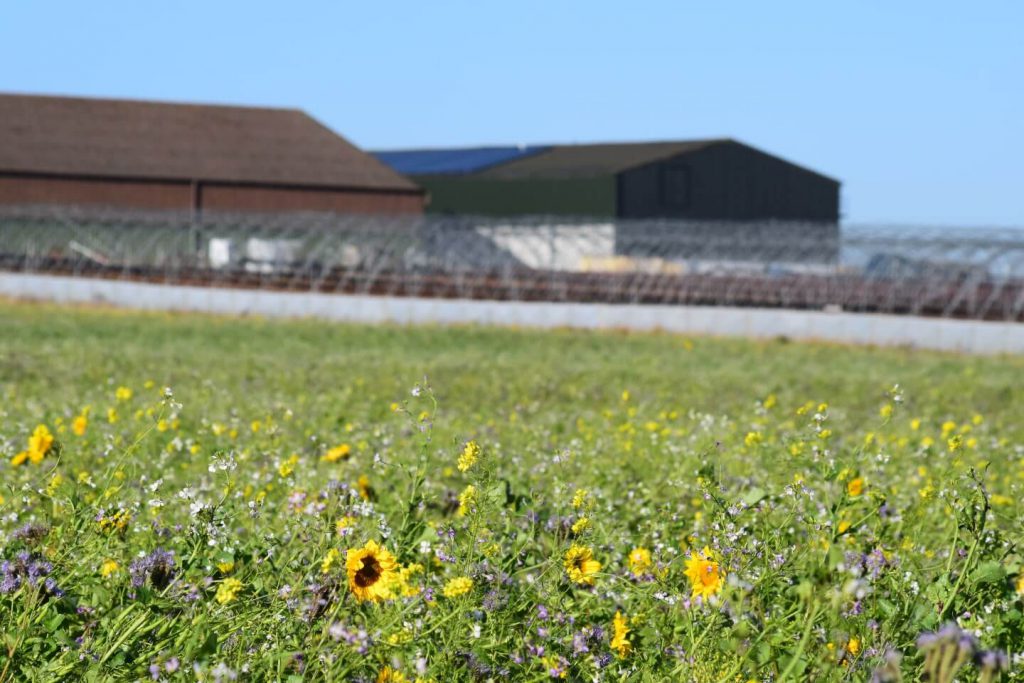Taking care of our environment
ARABLE
Our arable farm has recently started moving towards regenerative farming techniques, which means reducing the number of mechanical passes over our land and reducing land disturbance, improving our carbon footprint. New crop rotations, including cover crops, help to attract natural predators and improve soil health, which in turn will help reduce the amounts of plant protection and artificial fertiliser used on the farm. Another way we are working to reduce the need for additional fertiliser is the use of compost, which is blended with spent hops from local brewery Oakham Ales, and woodchip from Nene Valley Tree Services. This mix is stored for 12 months before being spread in early spring to feed worms and bug life.
To foster other animals we are working to create wildlife corridors, planting 6,800 hedgerow plants across the farm, to gap up old hedges or develop new hedges, as part of our active involvement in mid-tier countryside stewardship. Unproductive areas of farmland are also being planted with wild bird seed mixes and legume rich cover crops to encourage birds and pollinators.
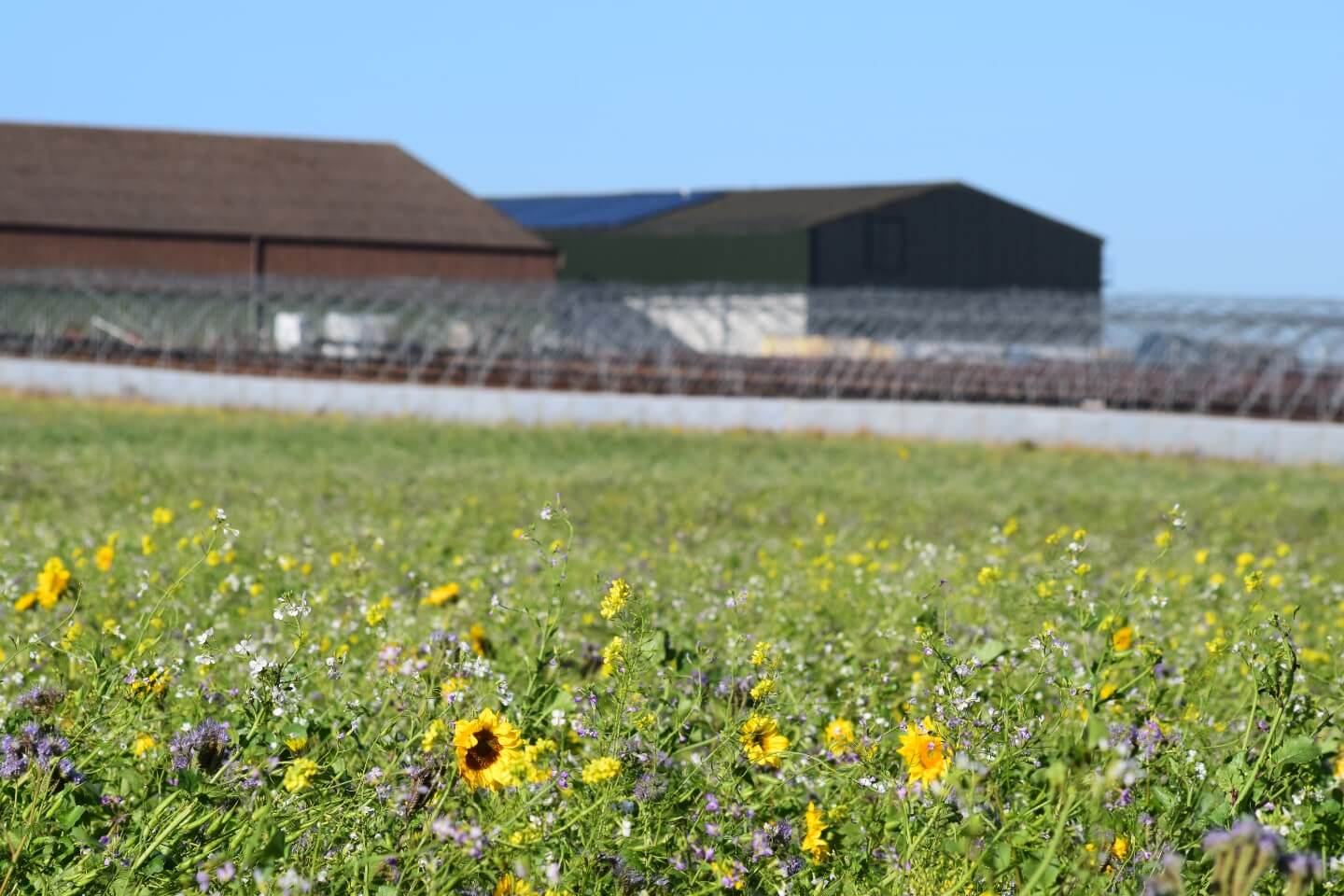
POLLINATION
Pollination is an essential part of blueberry production, and therefore supporting pollinators such as moths, butterflies and bees is a key goal for us. Planting cover crops which are full of flower, helps increase the number of pollinators visiting the farm. We also have local beekeepers who have honeybee hives on site, supporting the bumble beehives used in the spring.
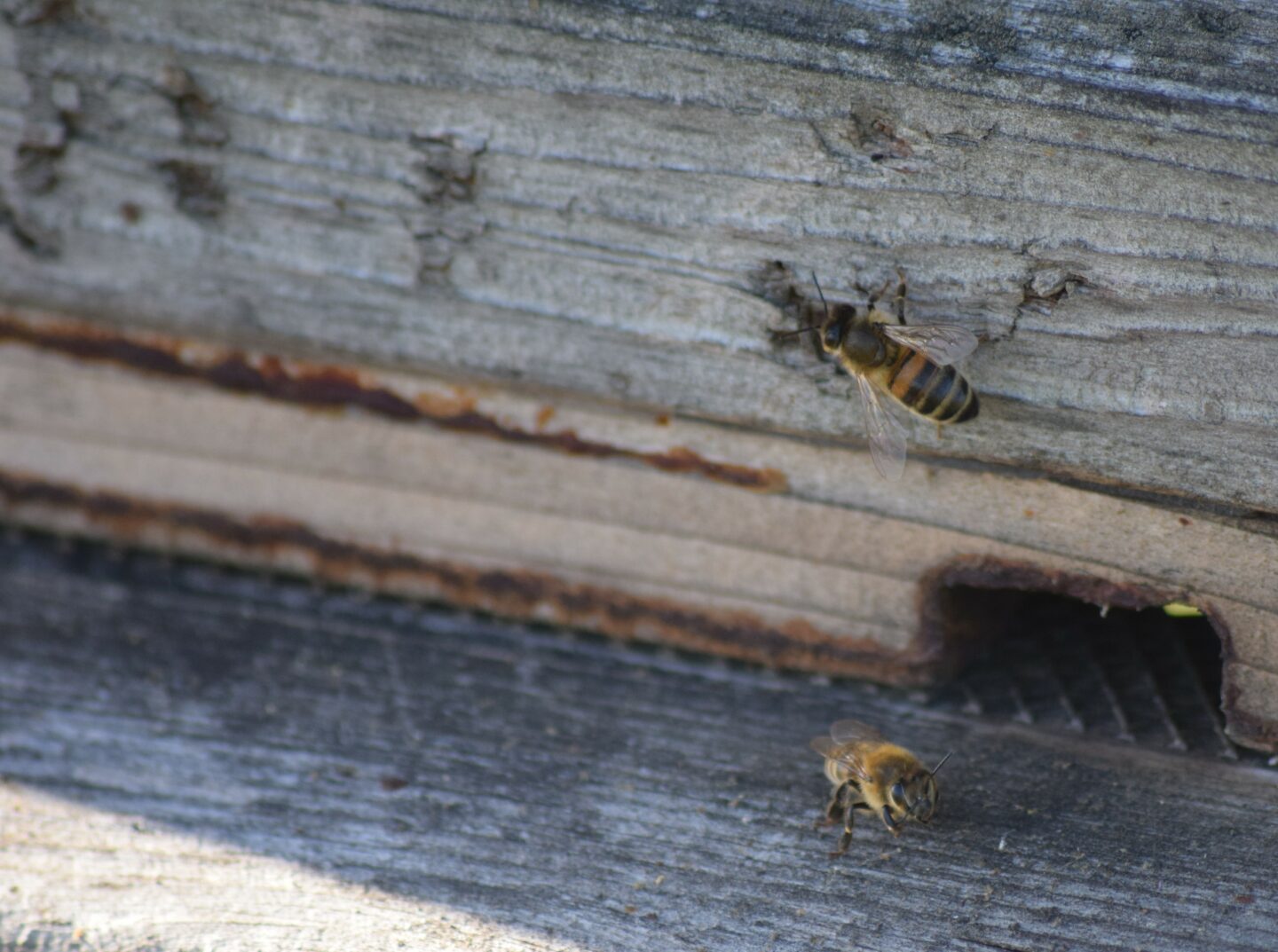
Materials
The horticultural operations including the packhouse equally have a key focus on protecting the environment with their choice of packaging materials. All plastic punnets used are recyclable, and the farm has a waste baler on site which we use to bale cardboard boxes, plastic punnets and other plastic waste before it is collected for recycling. Waste metal from our arable operations is taken to a recycling yard and any waste oil is recleaned to be used as fuel.
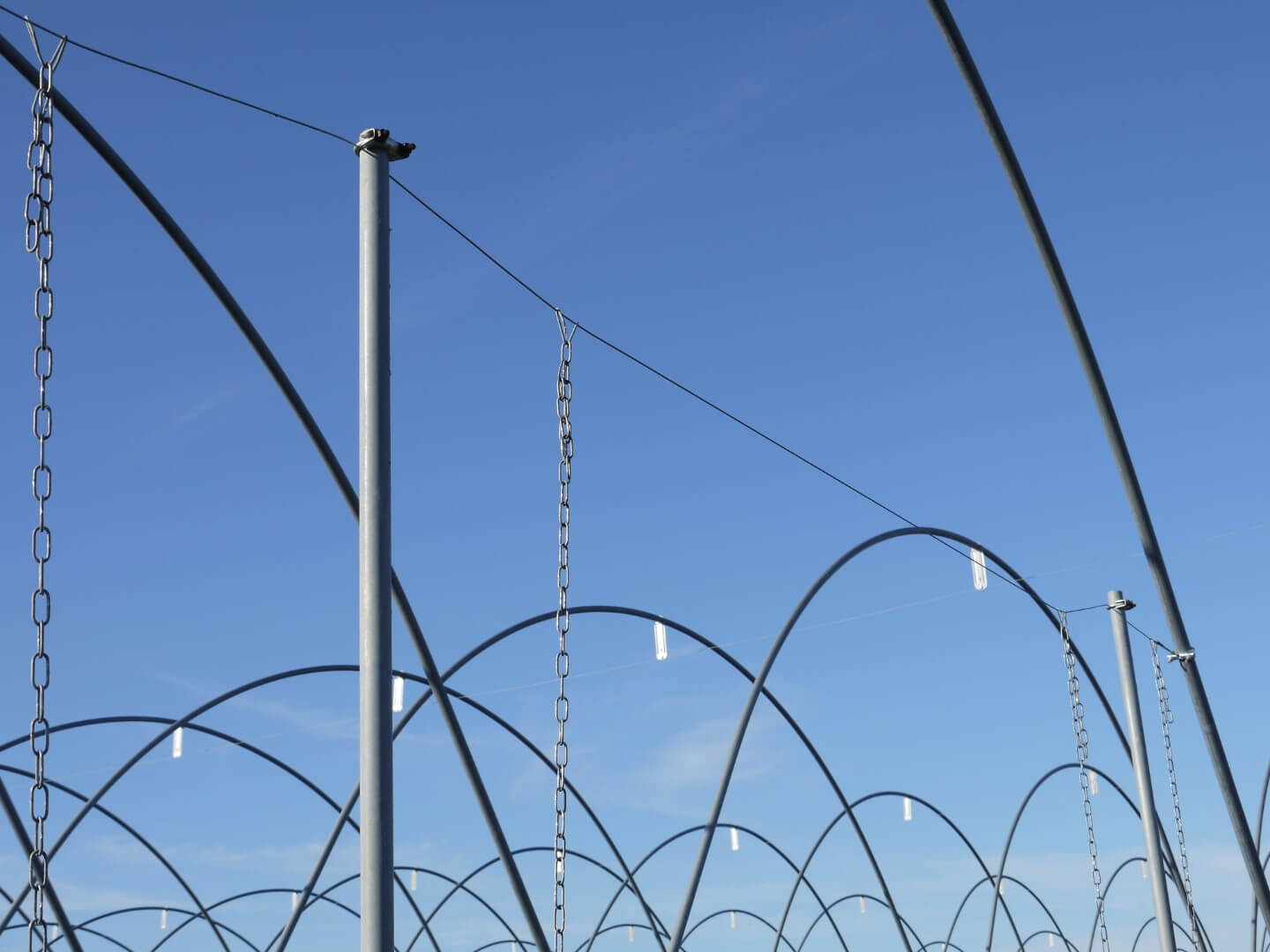
IMPERFECT FRUIT
There will always be a percentage of imperfections when handling fresh fruit, therefore our goal for the future is to turn what would be ‘waste blueberries’ if restricted to retail shelf life, into something for everyone to enjoy! We do this by freezing the ripest fruit, preserving its sweetness and using that frozen fruit in our product recipes.
The fruit which is inedible to us, for example immature berries or berries which have fallen from the bush, go to a local pig farmer, for the pigs to enjoy at their leisure.
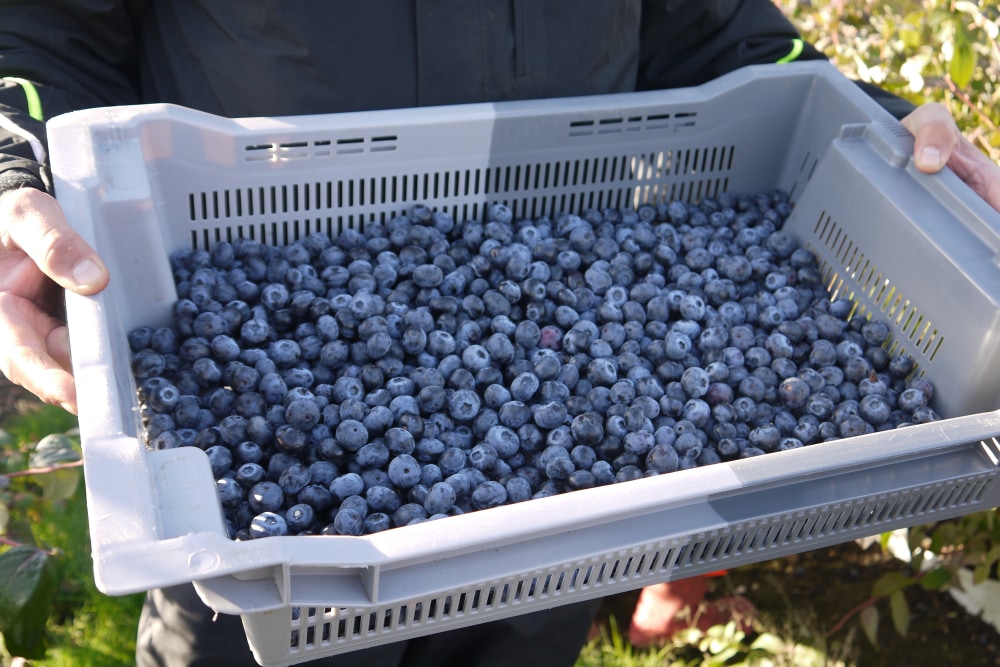
HARNESSING NATURE
With solar panels on our grain store rooves, and a ground source heat pump for the farmhouse, we are keen to power our business through nature using renewable energy where possible.
Working within our countryside stewardship plan, we have installed rainwater harvesting systems to help make use of naturally available resources which would otherwise get washed away. Meanwhile, the blueberry irrigation systems work through trickle irrigation systems, helping to keep our water waste on site very low.
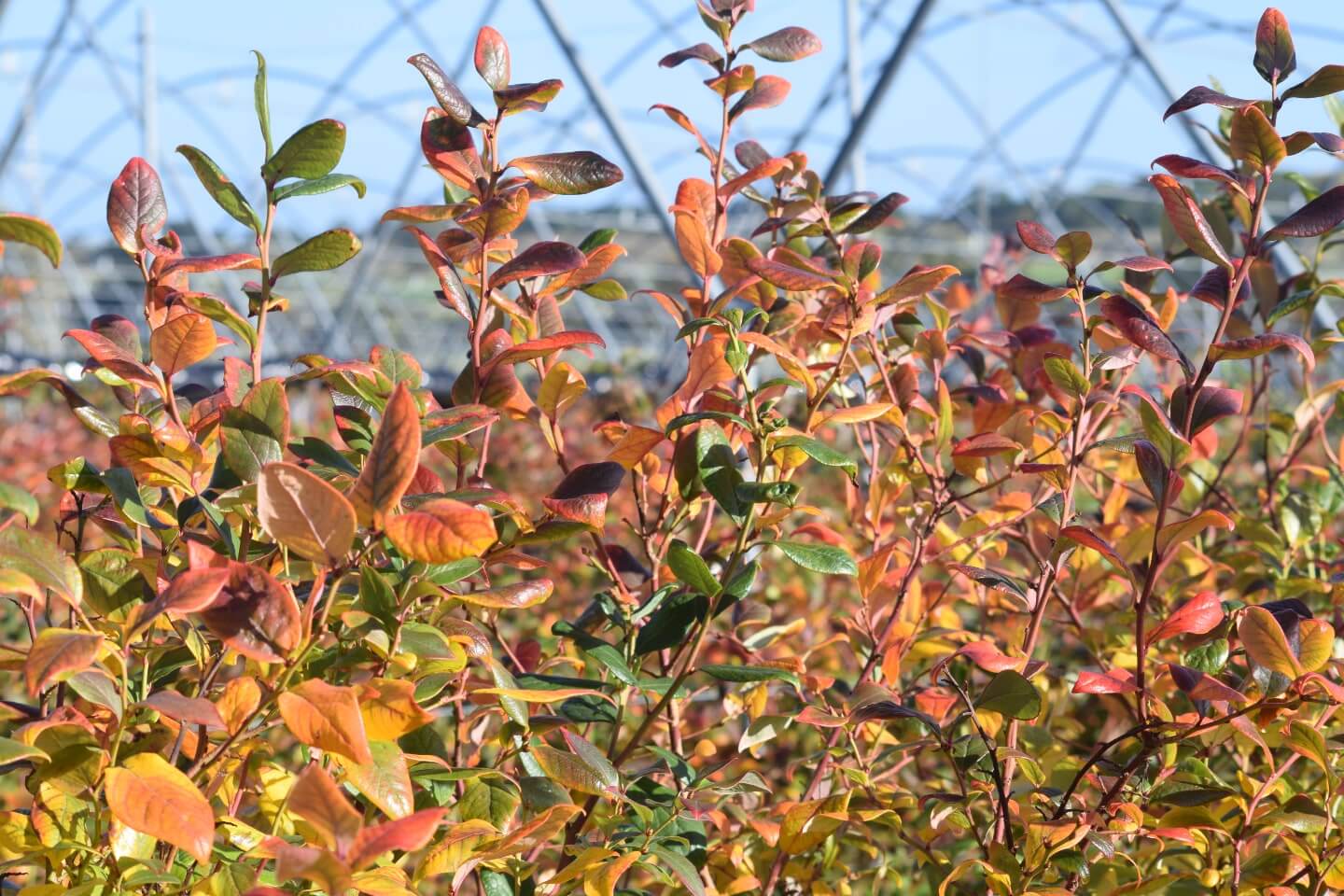
RECOGNITION
We’re thrilled to announce that our dedication to sustainability has been recognised! In 2023, we proudly received the prestigious title of “FWAG East Conservation Farm of the Year.” This award honours our unwavering commitment to responsible land stewardship and eco-friendly practices. Join us in celebrating this significant milestone in our sustainability journey.
